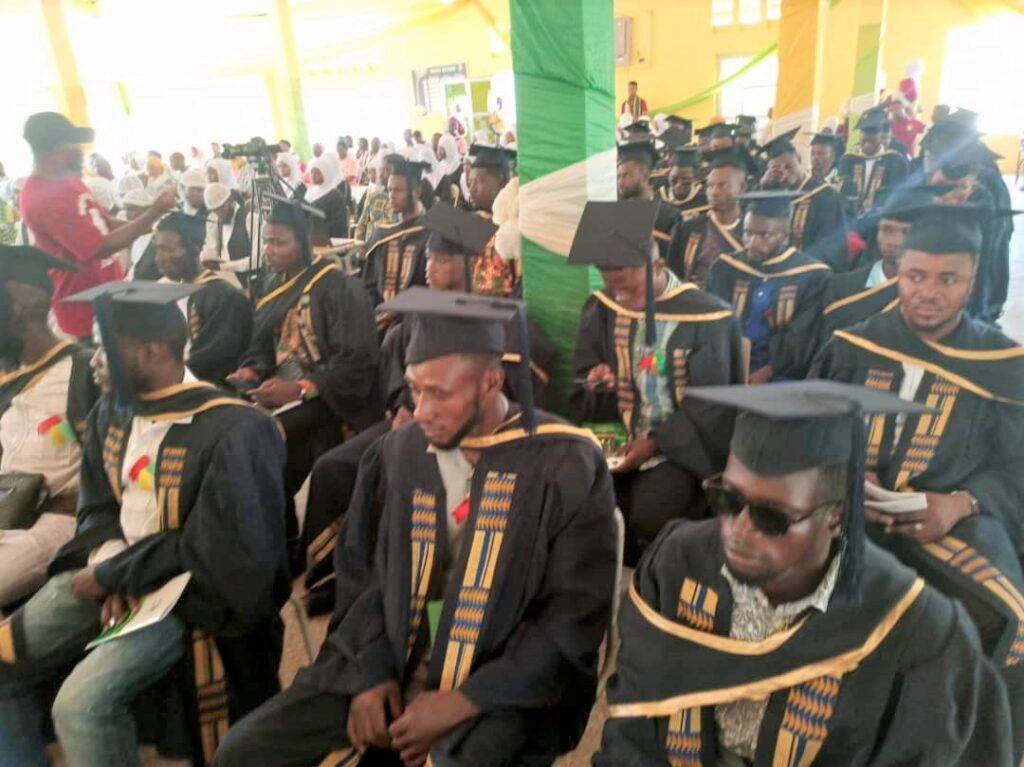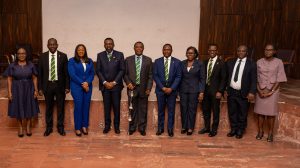
By Collins Kissiedu SARPONG
In an era where digital literacy is a fundamental skill, the ability to teach programming effectively has become an essential part of teacher education. Yet, in Ghanaian colleges of education and IT training institutions, programming instruction remains a persistent challenge.
Many pre-service ICT educators graduate without the confidence or competence to teach programming languages effectively at the basic, secondary or tertiary levels. This educational gap threatens the nation’s broader vision of producing digitally capable graduates for the 21st century.

As part of my intended doctoral research, I plan to explore an area titled ‘Enhancing Programming Language Instruction in Ghanaian Colleges of Education and IT training institutions: A Pedagogical Framework for ICT Educators’, seeks to confront this challenge head-on. It aims to propose a practical, contextually responsive teaching model to equip ICT lecturers and student-teachers with effective programming instruction techniques.
The problem – Weak foundations in programming pedagogy
Current instructional practices in colleges of education are often heavily theoretical and textbook-driven, with minimal practical engagement. Students are introduced to programming languages like Python or Java through rote methods copying code from the board, memorizing syntax, and completing rigid lab exercises. This approach leads to surface-level understanding and widespread anxiety among learners.
Most ICT lecturers lack formal pedagogical training in computer science education. Without appropriate instructional design strategies tailored for programming, lessons become uninspiring, and students disengage. Moreover, limited access to tools, software, and stable internet further worsens the teaching and learning experience.
Why it matters
Ghana’s new curriculum for basic education promotes coding, robotics, and digital creativity. Yet, if the teachers entering classrooms lack the skill and confidence to teach these concepts, the curriculum will remain ineffective. Programming is not just a technical skill it requires a mindset, a logical way of thinking, and confidence to experiment. Cultivating this mindset in trainee teachers should be a national priority.
By improving how programming is taught in teacher training colleges, we set the stage for a digitally skilled teaching workforce, capable of preparing the next generation of problem solvers, developers, and tech creators.
Proposed research approach
My research will adopt a mixed-methods approach, combining qualitative and quantitative data to:
- Investigate current teaching practices in programming across selected colleges of education.
- Explore students’ experiences and perceptions of programming instruction.
- Identify gaps in teaching materials, methods, and lecturer training.
- Design and test an improved pedagogical framework that incorporates best practices such as:
- Visual programming tools (e.g., Scratch or Blockly)
- Problem-based learning
- Peer teaching and collaborative coding
- Formative assessment and real-world projects
Through iterative classroom trials, interviews, and surveys, the study will evaluate the effectiveness of the proposed framework in improving student engagement and learning outcomes.
Learning from my earlier research
This research builds on insights from my MSc thesis, which involved using a multimedia application to teach reading and writing in Akuapem Twi, an indigenous Ghanaian language. That study showed how well-designed digital tools when paired with learner-centered strategies can significantly enhance educational outcomes. The success of that project inspires confidence in developing tailored instructional models that respect context, culture, and learner diversity.
What makes this research unique?
While many global studies have explored programming pedagogy, few focus on the African teacher education context. Ghana’s training colleges operate under unique constraints: limited resources, large class sizes, and lecturers who juggle multiple responsibilities with little support for research or pedagogical innovation. This research aims to bridge the gap between theory and practice providing ICT educators with a realistic, flexible, and locally tested teaching model that they can adapt to their needs.
Expected impact
By the end of this research project, I hope to:
- Propose a contextualized pedagogical framework for programming instruction in Ghanaian Colleges of Education and all accredited IT training institutions.
- Recommend curriculum adjustments and policy directions for ICT teacher education.
- Empower lecturers and pre-service teachers with evidence-based tools and strategies.
- Contribute to academic literature on computer science education in Sub-Saharan Africa.
Call to action
To transform programming education in Ghana, stakeholders must invest not just in tools and infrastructure, but in the pedagogy of programming. Ministries of Education, curriculum designers, teacher training institutions, and development partners should collaborate to support research-driven instructional models. I invite educators, researchers, and policymakers to join the conversation. We must rethink how we prepare our teachers not only to use technology but to teach it with confidence, creativity, and cultural relevance.
>>>the writer is an IT professional, a lecturer in Computer programming languages, a data analytics and an educator at the Ghana-India Kofi Annan Centre of Excellence in ICT. He holds an MSc in Information Technology and is passionate about technology-enhanced learning, curriculum innovation, and empowering IT professionals, teachers and lecturers through practical digital skills. He can be reached via [email protected]
The post Rethinking programming language instruction in Colleges of Education: A call for pedagogical reform appeared first on The Business & Financial Times.
Read Full Story




















Facebook
Twitter
Pinterest
Instagram
Google+
YouTube
LinkedIn
RSS